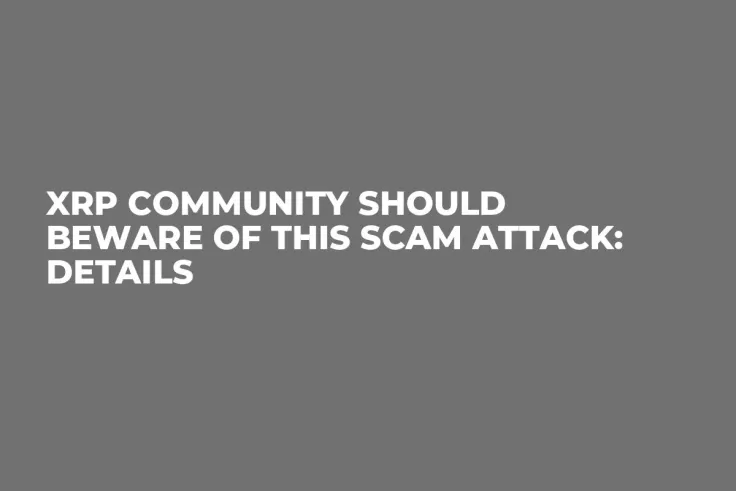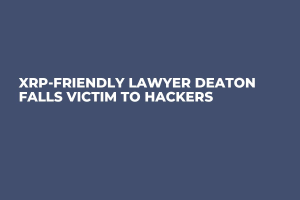
Disclaimer: The opinions expressed by our writers are their own and do not represent the views of U.Today. The financial and market information provided on U.Today is intended for informational purposes only. U.Today is not liable for any financial losses incurred while trading cryptocurrencies. Conduct your own research by contacting financial experts before making any investment decisions. We believe that all content is accurate as of the date of publication, but certain offers mentioned may no longer be available.
Blockchain educator and advocate Jacob Canfield relayed important information to the XRP community, sharing how he was targeted by a phishing attack after receiving an email purportedly from the Ripple team regarding an XRP allocation program.
Canfield issued a warning about this fraudulent token allocation program scam that targets the XRP community. He cautions owners of XRP that emails with the subject "the allocation program" are fake and intended to drain their XRP. Ripple is not conducting any allocation programs and, as such, the emails remain malicious.
Another day, another crypto scam.
— Jacob Canfield (@JacobCanfield) June 19, 2023
This time starring $XRP.
I got this email this morning, probably from the ledger breach or Gemini breach.
If you receive an email that’s titled ‘The Allocation Program’ from the @Ripple team, it’s not real.
It’s a phishing attempt to get… pic.twitter.com/TrW5xGjduW
Cybercriminals frequently imitate large crypto organizations to steal users' digital assets and personal data. These scams run the risk of granting unauthorized users access to XRP accounts, putting user XRP funds at risk.
The email shared by Canfield directs users to a fraudulent Ripple blog post that describes an "allocation program" and explains how investors may register their XRP claims. The scam seems to also target newbies, or newly funded XRP accounts.
To give their hoax more legitimacy, scammers advocate for self-custody and key ownership awareness, saying it is a "key element of the program."
However, users should avoid clicking on unknown or suspicious links. Users of XRP should be cautious about revealing their 24-word recovery phrase to others and should avoid inputting it into any apps or websites because anyone requesting it may be a scammer.
This would not be the first scam or hack attack targeting the XRP community. John Deaton, a well-known XRP advocate, was the target of a cyberattack earlier in June that resulted in the compromise of his Twitter account.
The hackers introduced a fraudulent token called "Law," seeking to capitalize on Deaton's standing in the cryptocurrency community.


 Dan Burgin
Dan Burgin Vladislav Sopov
Vladislav Sopov